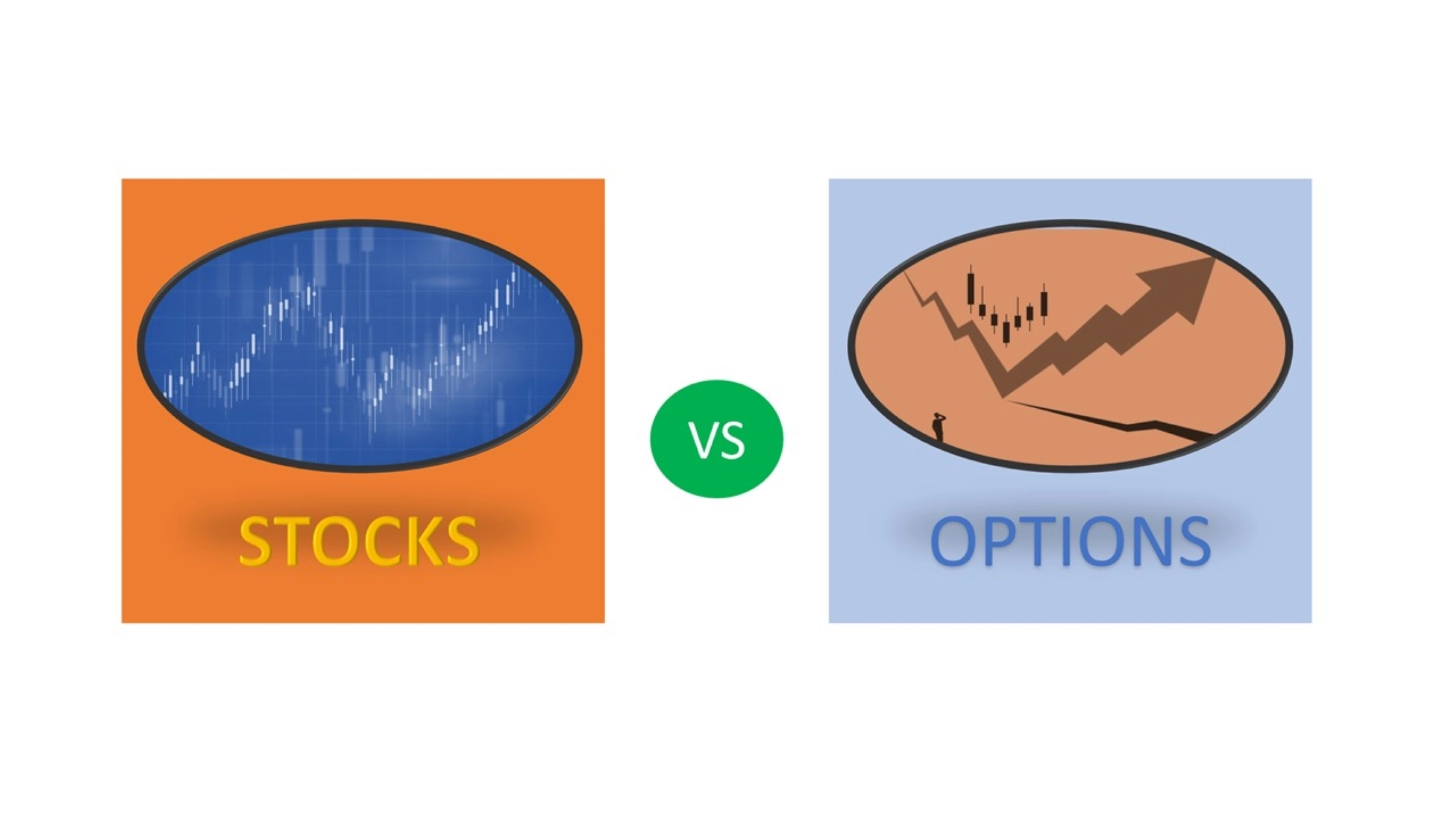Both stocks and options put your money to work.
Stock investing is considered as a high-risk activity that comes with a high-reward potential, but options trading could be even riskier.
In fact, options offer the possibility to double or triple your money at the risk of losing all of it in a matter of weeks or months.
Differences between stocks and options
| Stocks |
Options |
| Stock is the ownership interest in a company and could be traded on the stock exchange. |
Option is the right to buy a stock (or other asset) at a specified price by a specific time. Stock options trade on a public exchange. |
| It has an indefinite life and continues as long as the company exists and remain publicly traded |
It has a fixed life, with a specific expiration date, after which its value is settled among investors and the option ceases to exist. |
| Stock market prices fluctuate but over time, its performance should track the business performance of the company |
There are two options: call and put
- Call options allow the owner to buy the underlying stock at a specified price (strike price) until the expiry date of the options. When the stock price goes up, call options increase in value, all else equal.
- Put options allow the owner to sell the underlying stock at a specified price (strike price) until the expiry date of the options. When the stock price goes down, put options increase in value, all else equal.
|
Both stocks and options are viable investing tools. So, how do you know when it is better to invest in stocks or options?
Here’s a simplified table for you to follow as a guide.
When is it better to invest in stocks or options?
| Stocks |
Options |
| You are new to investing in the stock market. Investing in the stock market requires analysis and understanding of the business but trading in options requires even more work including a good understanding of technical analysis. |
You want to limit your risks with hedging. Options allow you to limit your risk with certain boundaries based on the strategy you adopt. |
| You want to invest for the long-term. The stock market can fluctuate in the near-term but its returns has generally outperformed other asset classes in the long-term while options have an expiry date. |
You’re an advanced investor. Experienced investors will have a better understanding of the market trends and options trading will allow them to speculate on the market movements. |
| You don’t have time to follow the market closely. While you have to set aside time to evaluate your stock portfolio, you don’t have to spend as much time as compared to options given the expiry date. |
You have the time to follow the market. If you have the time to actively monitor market movements, options trading could be a good strategy to adopt. |
| You can withstand the fluctuation of the stock market. If you can ride out the ups and downs in the stock market, this will be a better choice for you. |
You want to generate extra income. Investors can sell call options at a premium against the stocks owned as a way to create income. |
Options trading is riskier than stock investing
Both stock market and options take a very different approach.
For investors in the stock market, the time horizon is usually on a longer-term basis while options traders want to generate extra income, hedge their investment risks and take advantage of the market turns.
It is important to know that both options and stock investing offer different risk and reward profiles. For investors who are keen to tap on options trading, it is riskier than putting your money into the stock market.
If you would like to start trading options, please read this article on how to get started. We have also introduced some options trading strategies: Strip Straddle and Covered Call to help you understand how to trade with options.
Disclaimer: ProsperUs Investment Coach Billy Toh doesn’t own shares of any companies mentioned.









